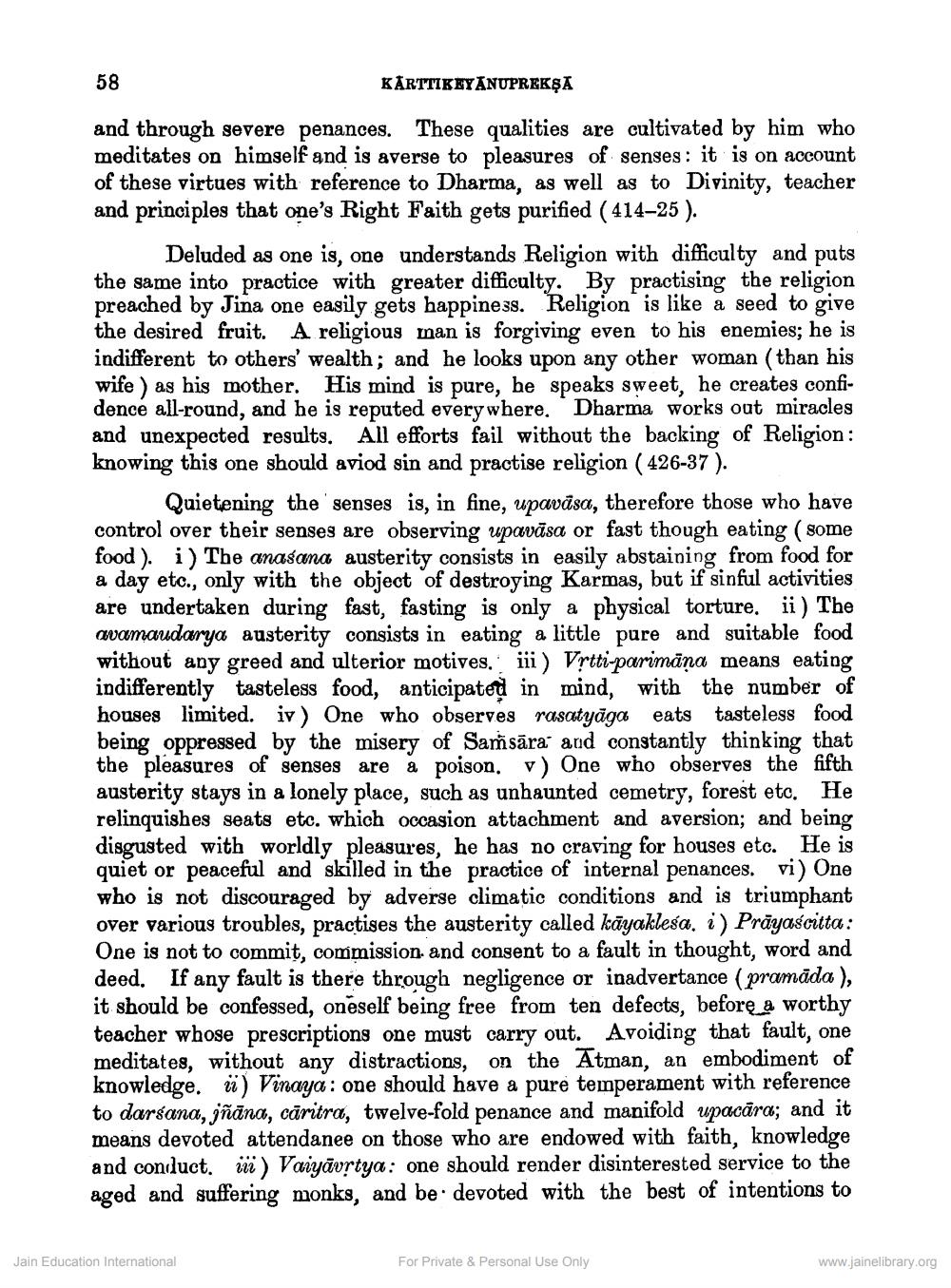________________
58
KĀRTTIKEYANUPREKŞA
and through severe penances. These qualities are cultivated by him who meditates on himself and is averse to pleasures of senses: it is on account of these virtues with reference to Dharma, as well as to Divinity, teacher and principles that one's Right Faith gets purified ( 414-25).
Deluded as one is, one understands Religion with difficulty and puts the same into practice with greater difficulty. By practising th preached by Jina one easily gets happiness. Religion is like a seed to give the desired fruit. A religious man is forgiving even to his enemies; he is indifferent to others' wealth; and he looks upon any other woman (than his wife as his mother. His mind is pure, be speaks sweet, he creates confidence all-round, and he is reputed everywhere. Dharma works out miracles and unexpected results. All efforts fail without the backing of Religion: knowing this one should aviod sin and practise religion ( 426-37).
Quietening the senses is, in fine, upavāsa, therefore those who have control over their senses are observing upavāsa or fast though eating (some food ). i) The anasana austerity consists in easily abstaining from food for a day etc., only with the object of destroying Karmas, but if sinful activities are undertaken during fast, fasting is only a physical torture. ii) The avamaudarya austerity consists in eating a little pure and suitable food without any greed and ulterior motives. iii) Vrtti-parimāņa means eating indifferently tasteless food, anticipated in mind, with the number of houses limited. iv) One who observes rasatyāga eats tasteless food being oppressed by the misery of Saṁsāra and constantly thinking that the pleasures of senses are à poison. v) One who observes the fifth austerity stays in a lonely place, such as unhaunted cemetry, forest etc. He relinquishes seats etc. which occasion attachment and aversion; and being disgusted with worldly pleasures, he has no craving for houses etc. He is quiet or peaceful and skilled in the practice of internal penances. vi) One who is not discouraged by adverse climatic conditions and is triumphant over various troubles, practises the austerity called kāyaklesa, i) Prāyascitta: One is not to commit, commission and consent to a fault in thought, word and deed. If any fault is there through negligence or inadvertance (pramāda ), it should be confessed, oneself being free from ten defects, before a worthy teacher whose prescriptions one must carry out. Avoiding that fault, one meditates, without any distractions on the Atman, an embodiment of
owledge. i) Vinaya : one should have a pure temperament with reference to darsana, jñāna, caritra, twelve-fold penance and manifold upacāra; and it means devoted attendanee on those who are endowed with faith, knowledge and conduct. iii) Vaiyāvrtya: one should render disinterested service to the aged and suffering monks, and be devoted with the best of intentions to
Jain Education International
For Private & Personal Use Only
www.jainelibrary.org




